Law, Morality, Justice, and Freedom in Terry Pratchett’s Discworld
Law, Morality, Justice, and Freedom in Terry Pratchett’s Discworld

Dejvid Mekilroi.
shpërnda postën
regjistrohu tek teologjia e ligjit
Do të merrni një e-mail mujor me burime të reja, përditësime, informacione të ngjarjeve dhe përmbajtje të tjera të kuruara për të ju ndihmuar të jetoni një jetë ku besimi ju profesoni dhe ligji që praktikoni janë të lidhur në mënyrë integrale. Shënim: ne i urrejmë spamet dhe e marrim privatësinë tuaj jashtëzakonisht seriozisht. Të lutem shiko. Politika E Privatësisë për të kuptuar se si i përdorim dhe i mbrojmë të dhënat e tua).
Terry Pratchett’s Discworld series is renowned not just for its imaginative storytelling and wit, but for its penetrating insight into the nature of morality and justice. Far from being mere flights of fancy, these novels offer a compelling exploration of ethical principles that resonate today. Through the lives of his characters and the societies they inhabit, Pratchett delves into the essence of what it means to be just, the value of natural law, and the profound simplicity of recognizing sin through action.
I recently gave a lecture titled, “Wrestling with the god(s) in Discworld,” which you can read in PDF and/or listen to the audio recording. The presentation introduces Sir Terry Pratchett and his Discworld series, and then tackles a variety of connected and core topics, including: Pratchett’s view of religion, atheism as protest, the vital importance of objective morality, law, justice and freedom, his anger at injustice, and his view of sin, death and redemption.
In this blog post I want to very briefly adapt some of what I explore in detail in the lecture, and outline the views on morality, law, justice, sin and freedom that Pratchett’s presents in the series—hopefully stoking your appetite to read the full presentation, and then, of course, to read Pratchett himself.
Objective Morality in Discworld
The Presence of Moral Absolutes
As I wrote in the lecture: “In the Discworld, the gods (with a small ‘g’) are not the ultimate reality. They are manifestations of belief. The gods do not govern the universe. Does that mean that Pratchett’s universe is chaotic and without a moral compass? To the contrary, a defiant belief in objective truth, justice, and goodness runs like a stick of rock through Pratchett’s work.”
Pratchett’s novels weave a fabric where objective morality is undeniable, acting as a backbone for the series. Critics have noted how Pratchett’s witty narrative, reminiscent of P.G. Wodehouse’s humour and set against a backdrop akin to Tolkien’s fantasy, conceals a deep commitment to truth, justice, and goodness. This trio is the unspoken law that governs the behavior of Discworld’s most memorable characters.
Anger at Injustice
Beneath the surface humour, there’s a fierce indignation at social wrongs. Pratchett channels his ire at inequality through two characters in particular—Samuel Vimes and Granny Weatherwax. Each, in their own way, demonstrates the author’s belief in the inherent worth of individuals and his trenchant opposition to injustice. Pratchett’s dissatisfaction with societal wrongs is palpable, distancing him from other writers in the ‘English Absurd’ tradition of comic fantasy.
Objective Justice and the Rule of Law
Law Over Order
In Night Watch, Pratchett reveals his clearest commentary on the importance of just law. He traces this back to the very oath that the City Watch swears, emphasizing service to the public and protection of the innocent over blind loyalty to government. We see this in the character of Commander Vimes who explains his reading of the oath to his officers:
“You took an oath to uphold the law and defend the citizens without fear or favour,” said Vimes. “And to protect the innocent. That’s all they put in. Maybe they thought those were the important things. Nothing in there about orders, even from me. You’re an officer of the law, not a soldier of the government” (Night Watch, 238).
This sets the Watch apart as not mere enforcers, but guardians of law and moral standards. Vimes, the embittered yet morally staunch officer, embodies Pratchett’s vision of a protector who serves justice rather than power.
Beyond the Walls of Privilege
Pratchett was furious about misused privilege, especially when it was used to subvert the law. He abhorred the notion that wealth or status could shield one from accountability. His narrative fiercely criticizes the idea of a ‘private law’ for the powerful, pointing out the inherent injustice in such a system. Vimes’s experiences, particularly in his confrontations with the city’s elite, highlight a society’s need for laws that apply equally to all.
Natural Law
Universal Morality
The concept of natural law in Discworld argues for a moral sense that transcends written statutes, one that inherently knows right from wrong. Pratchett explores this through the experiences of Vimes, particularly in Snuff, where the law of the land is challenged to extend its protection to the marginalized goblin population. This move towards a more inclusive application of rights echoes the historical struggles for equality in our own reality.
The Law for All Beings
Throughout Pratchett’s writings, he shows how different types of sentient beings deserve legal protection and respect. It’s a testament to a universal sense of justice that should recognize no boundaries of species or class. Vimes’s actions, encouraged by his intrinsic sense of what is right, serve as a metaphor for the advancement of civil rights and the ongoing struggle against discrimination.
Granny Weatherwax on the Nature of Sin
A Profound Simplicity
Granny Weatherwax, a character known for her no-nonsense approach, offers a simple yet profound definition of sin: treating people as things. This reduction distills a vast array of moral philosophy into a concept that resonates with the innate human, and profoundly Christian, understanding of dignity and respect. Her perspective calls into question the way we value human connections and ourselves, pushing for introspection on our actions and their implications. The conversations Granny Weatherwax has about sin highlight Pratchett’s view that the core of wrongdoing lies in dehumanization and objectification. This wisdom challenges us to see the worth in every individual and to act accordingly—a moral stance that demands acknowledgment of the personhood in everyone.
The Value of Freedom
Law as Freedom’s Servant
Pratchett’s characters often grapple with the role of law in society, finding that true justice should not suffocate freedom but serve it. Sam Vimes, particularly in Night Watch, reflects on the nuanced role of a police officer—not as an omnipotent arbiter, but a guardian of peace, emphasizing freedom and security. Carrot Ironfoundersson, the natural king who chooses the life of a watchman, symbolizes the ideal of serving the community over seizing power.
Avoiding Totalitarianism
The narrative makes it clear that law’s duty is not to correct every societal ill, but to maintain a balance where freedom can flourish within the framework of peace and security. Pratchett navigates through the complexities of authority and control, advocating for a world where individuals can live without the fear of oppression. This vision of freedom is not lawlessness but the assurance of a just and equitable society.
Conclusion
In the vast universe of fantasy literature, Terry Pratchett’s Discworld stands out for its profound engagement with the principles of morality, justice, and freedom. The series does not just entertain—it questions and critiques. Pratchett’s legacy is not only one of unparalleled creativity but also of moral philosophy, a call to recognize the dignity of all beings, and a reminder of the delicate balance between law and liberty.
shpërnda postën
regjistrohu tek teologjia e ligjit
Do të merrni një e-mail mujor me burime të reja, përditësime, informacione të ngjarjeve dhe përmbajtje të tjera të kuruara për të ju ndihmuar të jetoni një jetë ku besimi ju profesoni dhe ligji që praktikoni janë të lidhur në mënyrë integrale. Shënim: ne i urrejmë spamet dhe e marrim privatësinë tuaj jashtëzakonisht seriozisht. Të lutem shiko. Politika E Privatësisë për të kuptuar se si i përdorim dhe i mbrojmë të dhënat e tua).

